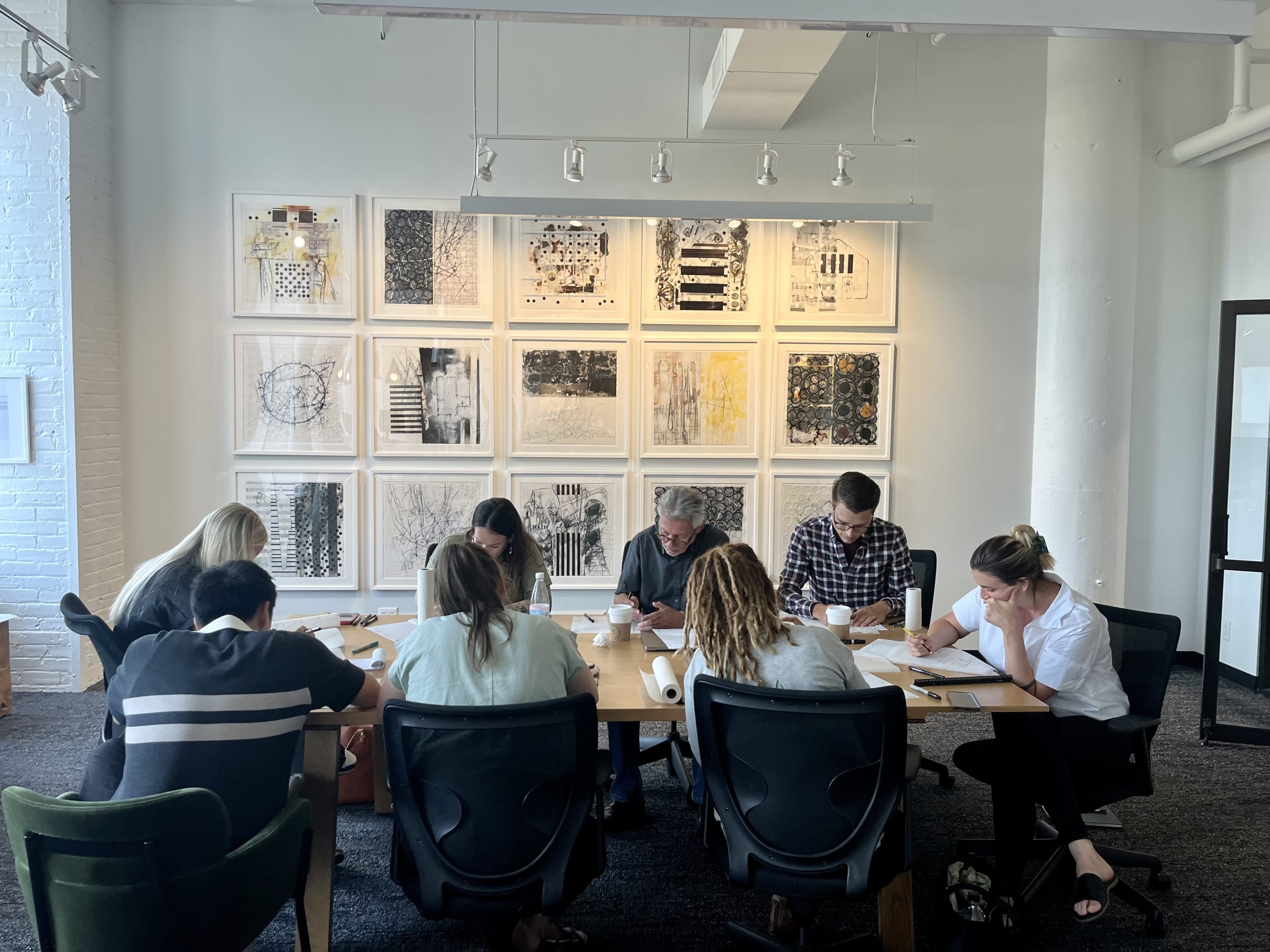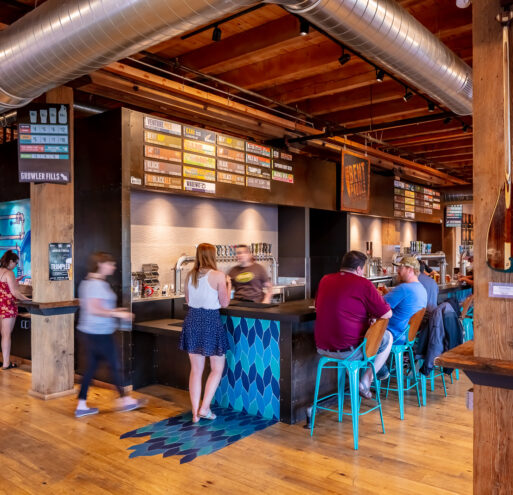
Designers play a critical role in helping businesses secure Minnesota cannabis licenses
Updated June 2025 with Minnesota cannabis license guidance and requirements from the Office of Cannabis Management (OCM).
Following the legalization of adult-use cannabis in Minnesota in 2023, Shelter has been tracking the roll-out of the state’s licensing process to support the wave of local businesses entering the industry. We’ve partnered with key industry leaders including Blunt Strategies, a Minnesota-based cannabis consultancy, to best equip ourselves with the knowledge, resources, and connections to help our cannabis clients succeed. Combined with our 20 years of experience designing retail, restaurant, brewery, and hospitality spaces, we’re uniquely positioned to help these businesses secure their Minnesota cannabis license and bring their facility to life.
The licensing process can feel incredibly daunting. A team of experts therefore will be critical to your success.
Next steps for preliminarily approved applicants
If you’ve made it through the first stages of the Minnesota cannabis licensing process and have been preliminarily approved by the Office of Cannabis Management (OCM), you’ll have 18 months to complete five key tasks before becoming licensed:
- Secure a compliant site and obtain zoning certification
- Prepare & submit your Final Plans of Record
- Pass a pre-licensure site inspection
- Pay your license fee
- Register with your local government (for licenses with a retail endorsement)
Here’s the team of experts you’ll need
* = Critical players
*Cannabis industry Consultant
A cannabis consultancy like Blunt Strategies, our trusted industry partner, can help guide you through the licensing process, advise on policy, and help position your business for operational readiness. They act as the “team captain” on the licensing, regulatory, and operational side.
*Architect & interior designer
An architect and associated team of designers, like our crew at Shelter, can professionally draft diagrams and craft written narratives needed for the Site, Security & Operations Plan that’s a required component of your Final Plans of Record that get submitted to OCM. We make sure that your facility is code compliant and that the layout, workflows, security systems, equipment, and furnishings align with regulatory requirements and best support your business operations. We also integrate critical building information from the engineers and consultants. We do all of this while seamlessly integrating your brand into your space. We act as the “team captain” on all things zoning compliance, building design, and FF&E (furniture, fixtures & equipment).
*General contractor
A general contractor would ideally be brought on during the development of your Final Plans of Record to help with preliminary construction pricing. While they could join your team after OCM approves your Final Plans of Record, we strongly suggest, for the purposes of budgeting and business planning, that you identify your general contractor sooner rather than later. Your architect can provide GC referrals. Once on board, a general contractor will lead the construction or renovation of your facility, including managing timelines, budgets, and inspections. They also coordinate with your architect and interior designer for design questions or any changes to building plans.
*Security consultant
Cannabis facilities are required to have a clearly planned access control, alarm, and surveillance system which a security consultant can design. They’ll provide guidance on the systems needed for your facility and develop the plans for where the equipment will be installed and how it should be used. As with all the information required for the Final Plans of Record, the security systems must be fully coordinated and integrated into the rest of your facility diagrams.
*MEP engineer (Mechanical, Electrical, Plumbing)
Whether it’s airflow for a cultivation site or wiring for retail lighting, an MEP engineer will be needed to ensure your electrical plans, ventilation systems, and access to water and sewer services are up to code.
*Fire protection engineer
You’ll need a detailed plan for fire, smoke, and carbon monoxide detection along with an alarm system. A fire protection engineer can ensure your safety infrastructure meets regulatory requirements.
Structural engineer
Structural engineers can create plans for your facility’s foundation, beams, columns, and other components that are required to support the building itself.
Real estate agent
An experienced real estate agent can help find viable sites or buildings for your facility, and they can assist with the purchase or leasing of the property.
Legal counsel
Especially in the evolving legal landscape, a cannabis-savvy, preferably Minnesota-based attorney can help review lease agreements, ownership documentation, and compliance strategy.
Civil engineer (if applicable)
Civil engineers can help with developing plans for stormwater and runoff management if needed. They will also manage any changes to facility-related parking lots, curb cuts, traffic patterns, or waste and water line connections.
Equipment consultant (if applicable)
Especially for cultivators and manufacturers, an equipment consultant ensures your tools, machinery, and layouts are efficient and compliant.
Landscape architect (if applicable)
Landscape architects can help plan for and design outdoor spaces associated with your facility.
Need help?
Looking for assistance assembling your team to secure a Minnesota cannabis license? Need guidance designing your facility to meet licensing requirements? We’re here to help.
Learn more
Miss out on our June 2025 webinars with Blunt Strategies? Watch the video recordings below.
- Friday, June 13th | Final Plans of Record – Assembling Your Team | Watch here
- Friday, June 20th | Final Plans of Record – Designing Your Site, Security & Operations Plan | Watch here
Related Posts
Sustainable design can serve your cannabis business
3 eco-friendly design considerations for cannabis businesses When budding cannabis entrepreneurs think green, they often have more than plants and…
Read more
Cannabis retail building typologies
Layout & design of retail cannabis spaces critical to customer experience The recent legalization of cannabis consumption and sales in…
Read moreCannabis businesses will benefit from design expertise
Designers will be critical in helping cannabis retailers execute their vision Today, Minnesota joins 22 other states — plus the…
Read more